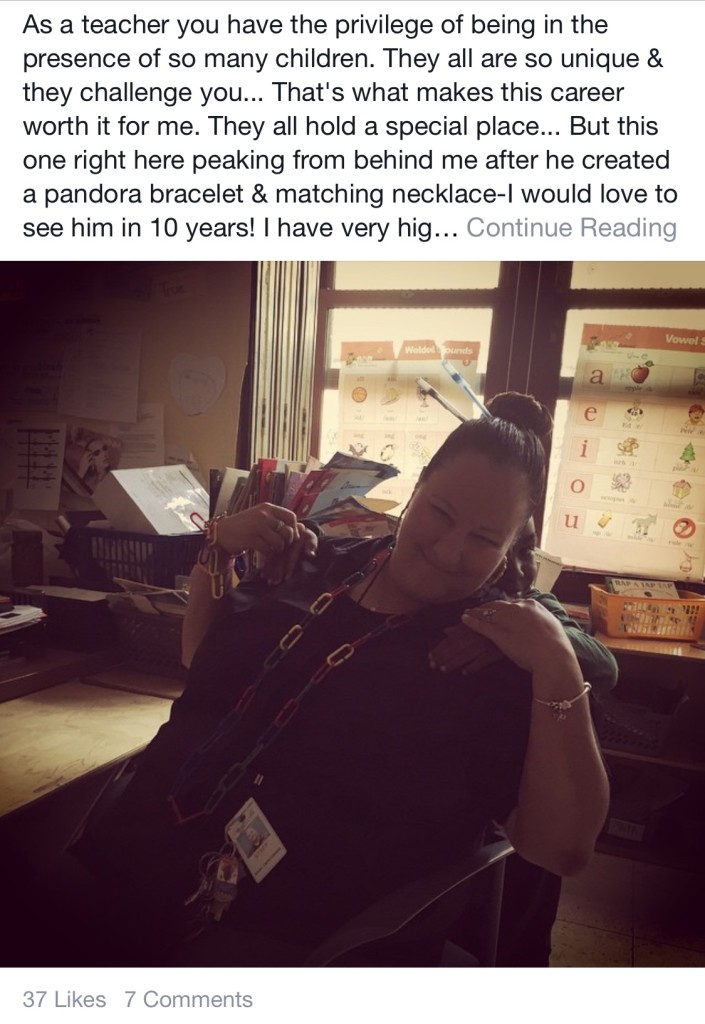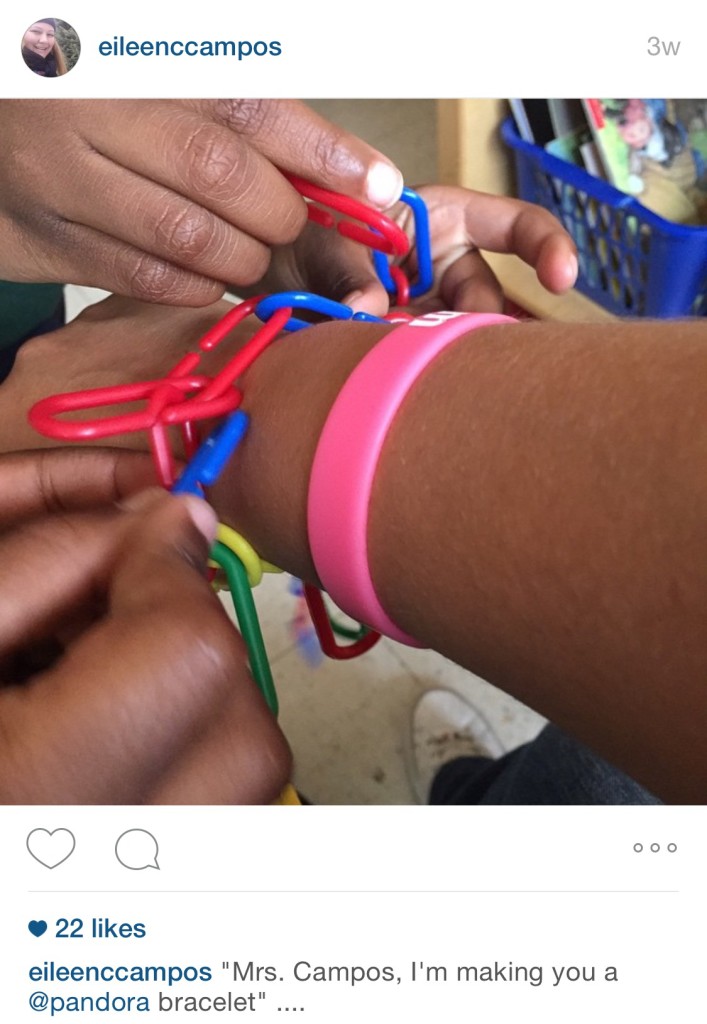In general, I advocate for teachers but I am not fearful to talk about the “bad ones” because they definitely do exist. I have worked alongside a few and, like most people, have encountered some throughout my own education. The good teachers are the ones who encourage and accept a child as he or she is. But then you have those who just shouldn’t be in the classroom. They can really make or break a child and again I am NOT ashamed to say that they are definitely out there.
Like anything there is some good and not so good in all groups. The bad apples shouldn’t ruin it for the majority but they need to be told when enough is enough…and maybe they should retire if they’re just done. When you’re only working for a paycheck and for days off it’s noticeable and I think that’s what bothers me the most. For me, I can really distinguish the teacher who does it for the LOVE instead of just for the sake of doing it. Granted, the profession is a difficult one and we all need our vacations and time off, but when you can see right through someone who you can tell genuinely doesn’t “value” children..it’s upsetting for me.
It bothers me that these “educators” don’t really take the time to get to know children and will pass judgement on them because of lack of research or just plain interest. I have witnessed this many of times and it’s heartbreaking. I have had children in my classroom who have NOT been diagnosed with anything necessarily, but that I want to know why they might be behaving in a certain way. I want to learn more about what makes them tick in an effort to connect with them. What do I do? I reach out to my support team in school and ask questions by doing the following:
- I ask the counselor or psychologist to come into the classroom and observe the child.
- I consult the parents and try to get some feedback from them.
- I speak to the child directly and observe his or her deficiencies to gather data.
I only wish educators would take more time to “get to know” a child instead of passing judgement based on where they from, their family environment and even where they see them going in a few years or their possible future (or lack thereof). Teachers: WE ARE NOT DOCTORS so we CANNOT diagnose anyone but we can certainly help along the way. If we made a little bit more of an effort, we could have a more positive attitude for and toward our children. Let us NOT wish away the days we have with our students but let us value the time we do have with them and make every moment count.
In the years that I have been teaching I have witnessed wonderful teachers encourage children further, making them feel valued. Sadly, I have witnessed that other type of teacher too. The teacher who identifies as the one who ADORES children but discusses otherwise with colleagues. The teacher who breaks down the hopes of a child and doesn’t provide any of the empathy and nurturing that some (most!) children need. After all, isn’t this why we are in the field—for the children? Bad teachers are something that need to be brought to light and I don’t have any problem discussing what I have witnessed. It’s my personal opinion that they’re out there and they’re doing damage and I am quite sure you have witnessed it as well.
Care to share: Have you witnessed an “educator” in action who really shouldn’t be a teacher? How were you (or your child) affected?



[…] As educators, we need to think a little bit more out of the box and begin to consider all of the children. Throughout my career all I have heard about is differentiation when we teach, and making sure no child is left behind and all are accounted for. When I see something as simple as this, and consider how it should have been well planned out to meet the needs of all, it’s disheartening to me as the mother of a child with ASD. I often think, will he ever be thought of a little bit more? Will he matter enough to take the time to get to know him and NOT judge him based on behavior observed in a less than accommodating environment? The distribution of awards is an entirely different rant but for now, this is something to think about. Parents need to advocate for their children and support educators to make changes for the better. For future generations to come. Kids with ASD and sensory processing issues aren’t going away and they have a right to a fair and equal education just like any other kid. […]